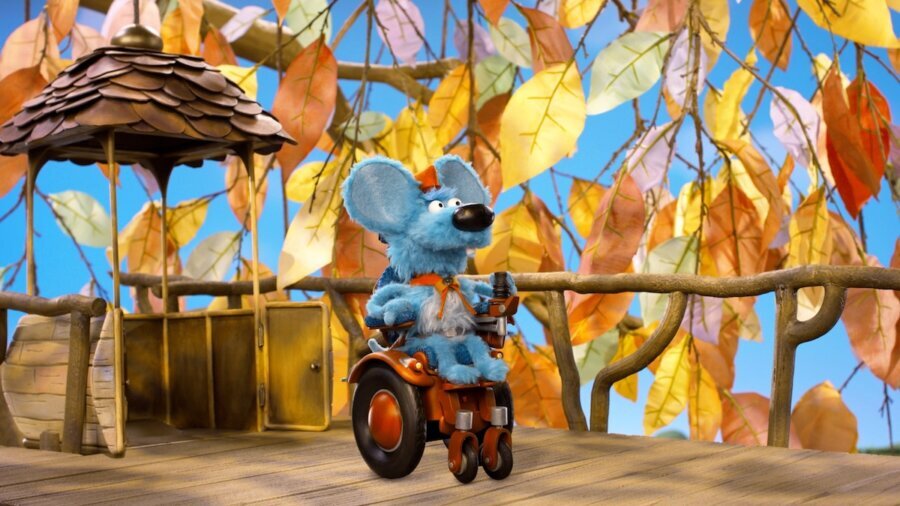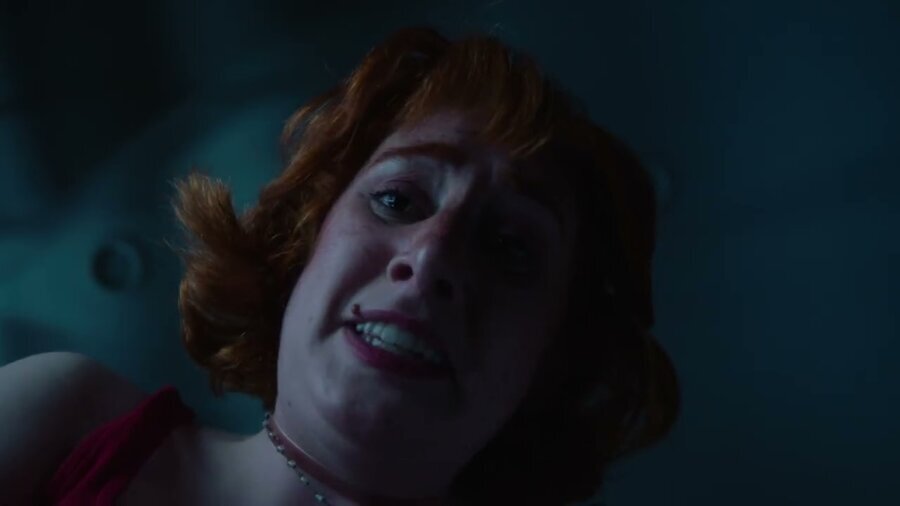“Don’t worry. It’s gonna be nice, David.”
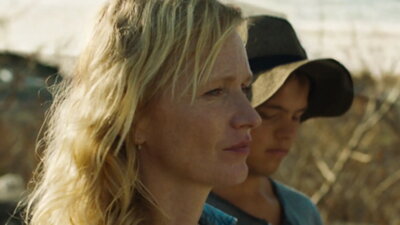 The feature film Caravan opens with an out-of-focus shot, first trained on the bright overhead sun, then panning to the glimmering sea below. Gentle ambient music accompanies the soft sound of waves splashing onto the shore. Still focused on this shot, viewers hear the above words—the opening dialogue of the film—spoken in a similarly gentle manner.
The feature film Caravan opens with an out-of-focus shot, first trained on the bright overhead sun, then panning to the glimmering sea below. Gentle ambient music accompanies the soft sound of waves splashing onto the shore. Still focused on this shot, viewers hear the above words—the opening dialogue of the film—spoken in a similarly gentle manner.
Viewers soon find out that the whispered speaker is Ester, the single mother of David, a nonverbal young man with unspecified developmental disabilities. Ester serves as the protagonist, and the film centers on her relationship with her son.
Caravan evades many of the reductive tropes common to disability representation in media, and specifically, representation of caretaker relationships. It avoids depicting their life together as simply inspiring due to David being disabled; portraying Ester as an unflinching, all-good, self-sacrificing mother or David as an inanimate object with without autonomy or actions of his own; or suggesting both of their lives are full of only hardship and struggle. [continue reading…]


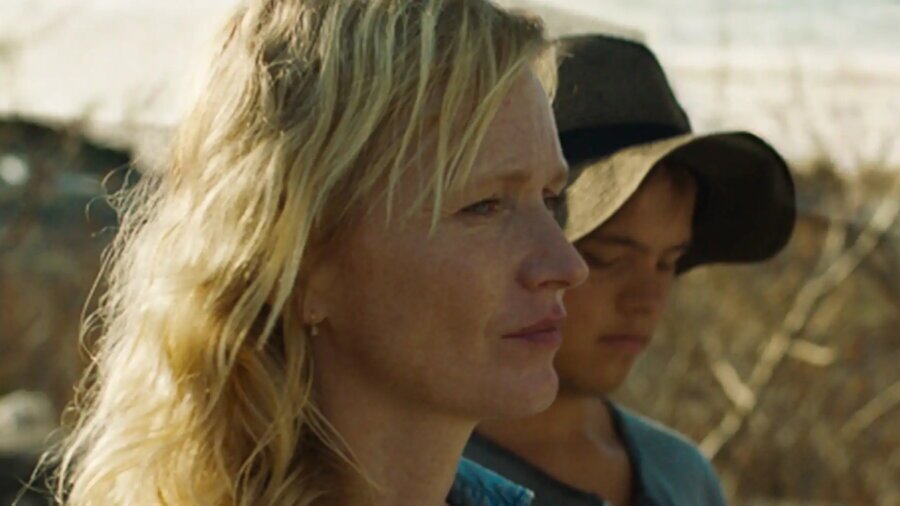
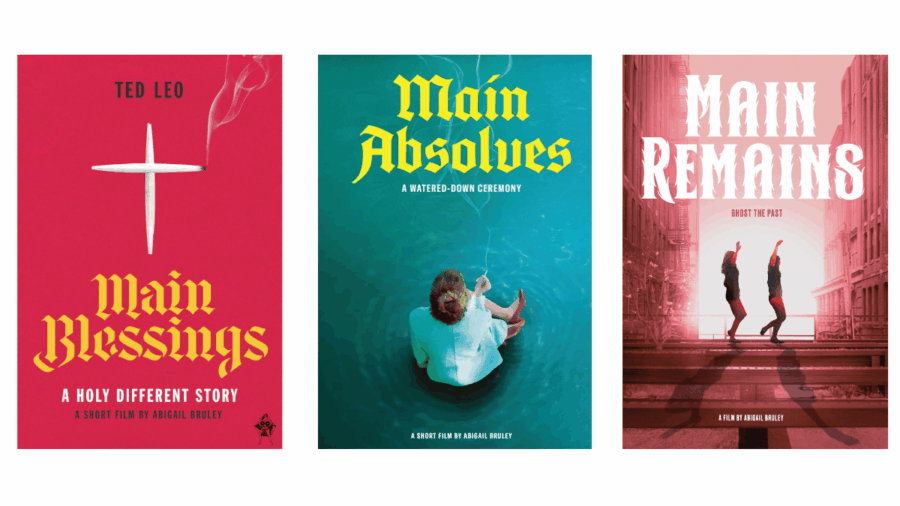
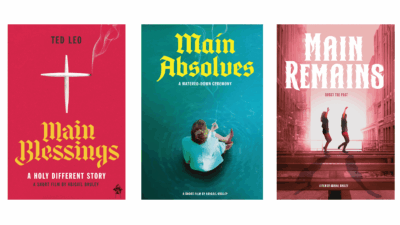 Inspired by personal experience, The Main Trilogy Writer and Director Abigail Bruley snapshots one person’s attempt to return to life as she knew it before acquiring a disability.
Inspired by personal experience, The Main Trilogy Writer and Director Abigail Bruley snapshots one person’s attempt to return to life as she knew it before acquiring a disability.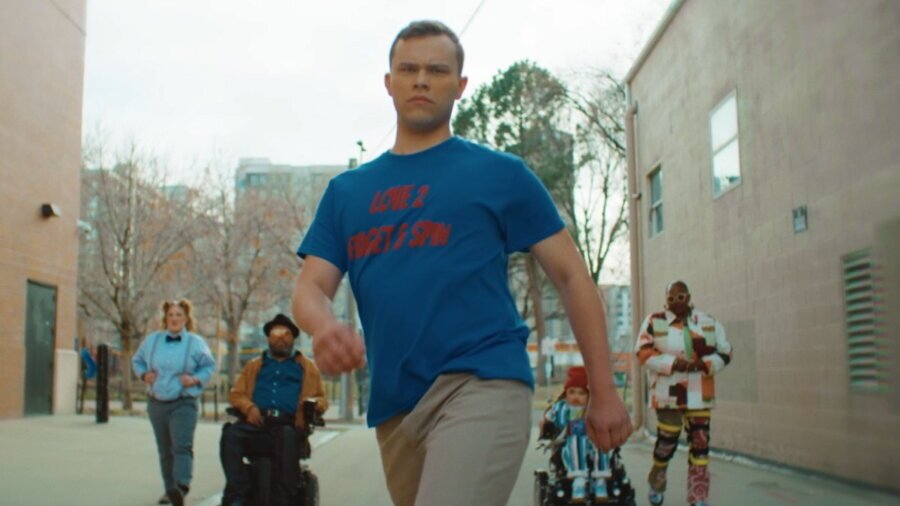
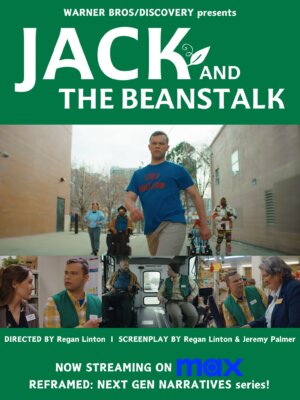 Viewers may think they know the story of Jack and the Beanstalk. However, writer/director Regan Linton has reimagined this classic tale in a new short film as part of Warner Bros. Discovery’s Reframed: Next Gen Narratives program. In this series, six filmmakers adapted classic movies through a contemporary lens, tackling modern-day issues surrounding identity.
Viewers may think they know the story of Jack and the Beanstalk. However, writer/director Regan Linton has reimagined this classic tale in a new short film as part of Warner Bros. Discovery’s Reframed: Next Gen Narratives program. In this series, six filmmakers adapted classic movies through a contemporary lens, tackling modern-day issues surrounding identity.


 After Season 2 of Jurassic World: Chaos Theory explored how Brooklynn survived a dinosaur attack and was living as an amputee, Season 3 allows Brooklynn to explore using – and not using – a prosthesis.
After Season 2 of Jurassic World: Chaos Theory explored how Brooklynn survived a dinosaur attack and was living as an amputee, Season 3 allows Brooklynn to explore using – and not using – a prosthesis.
 The new documentary Rising Phoenix: A New Revolution grabs viewers’ attention from the opening, pulling both disabled and nondisabled audiences in to become immersed in a world full of authentic disability representation.
The new documentary Rising Phoenix: A New Revolution grabs viewers’ attention from the opening, pulling both disabled and nondisabled audiences in to become immersed in a world full of authentic disability representation.

